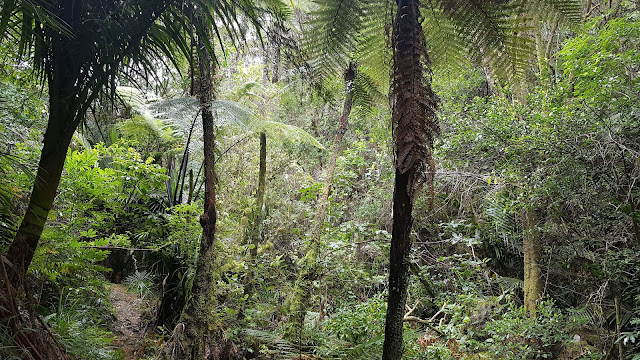Vor genau zehn Jahren und fünf Tagen sind wir, die Familie John-Casares, damals nach Neuseeland aufgebrochen, und etwa eine Woche später in Thames angekommen, wo wir bis heute leben. Eigentlich war der Aufenthalt für zwei Jahre geplant, doch stattdessen haben wir drei mal in Europa Urlaub gemacht.
Inzwischen sind zwei unserer fünf Kinder wieder nach Europa zurückgekehrt (nach Madrid und Lissabon), und einer studiert in Christchurch auf der Südinsel, und zwei wohnen noch bei uns. Ich arbeite weiter als Allgemeinarzt drei Tage die Woche, und zwei bis drei halbe Tage die Woche in meinem Fahrradladen JollyBikes. Elena führt mit viel Liebe weiter ihr B&B.
Was ist nun bis jetzt geblieben von den ersten Eindrücken?
Neuseeland ist ein riesiges Dorf, vielleicht abgesehen von Auckland, einer Großstadt wie viele andere.
Man kennt sich oder kommuniziert jedenfalls wie in einem Dorf, keiner kann dem anderen etwas vormachen. Unsere Premierministerin Jacinda wendet sich über Facebook an uns, denn sie ist eine von uns. Wir mögen uns auch mal streiten, aber wenn es hart auf hart kommt fragen wir nicht viel, sondern halten zusammen, ob das Problem COVID heißt oder Erdbeben. Wenn Hilfe und Solidarität gebraucht wird, ist sie da, ohne langes Zögern und Rechnen.
Bürokratie gibt es zwar schon viel, und manchmal übertrieben viel, aber dann auch wieder ganz wenig. Viel ist es immer dann wenn es um Sicherheit und Leben geht. Wenig immer dann wenn es auch ohne Bürokratie geht. Es gibt zum Beispiel kein Meldewesen, und es ist sehr einfach eine Firma zu gründen, aber die Hygiene- und Arbeitssicherheits- Bestimmungen sind dann zum Beispiel sehr streng.
Allgemein ist man hier mit wenig zufrieden, aber wenn sich das "Dorf" für etwas Neues begeistert, dann richtig (z.B. E-bikes, bestimmte neue Medikamente, soziale Reformen).
Die Häuser haben meist keinen richtigen Eingang, man stolpert gleich in's Wohnzimmer oder in die Küche, über Scharen abgestellter Schuhe. Es gibt wenig Wohnungen; selbst in Auckland wohnt man im Allgemeinen in einem Haus für sich, und wenn man sehr arm ist in einer Garage oder Gartenhütte.
Es gibt kaum öffentlichen Nahverkehr.
Neuseeland ist ein Fast-Food Land. Selber kochen ist nicht selbstverständlich.
Die Natur ist vielfältig, fast überall fantastisch schön und nie fern.
Erotische Beziehungen sind oft kurzlebig und nicht unbedingt an ein Versprechen gebunden.
Drogen sind leider allgegenwärtig und keinesfalls nur ein Jugendphänomen.
Neuseeländer wechseln oft den Wohnort und die Arbeitsstelle; selbst den Beruf. Auslandsaufenthalte auch für längere Zeit sind etwas normales. Neuseeländer lieben Wohnmobile, insbesondere wenn sie dann im Rentenalter sind.
Menschen mit guten Lebensfertigkeiten leben hier wie im Paradies; Menschen mit seelischen oder zwischenmenschlichen Schwierigkeiten geht es meiner Erfahrung nach eher schlechter als in Deutschland.
Die Schulen lehren viel praxisorientierter. Die Kinder werden in ihren Begabungen erkannt und gefördert; sie werden eher nicht unter Druck gesetzt sich in Bereichen zu verbessern die ihnen nicht liegen. Letzteres ist unsere Erfahrung mit dem deutschen Schulsystem.
Freundschaft wird im Augenblick gelebt, und ist weniger auf die Ewigkeit angelegt. Aus den Augen, aus dem Sinn, aber wenn man sich dann wiedersieht ist die Freundschaft gleich wieder aktiv.
Mobbing, Gewalt in der Familie, "Diskriminierung" und sexuelle Nötigung sind sehr verpönt und häufig Thema allgemeinen Interesses. Nichtsdestotrotz ein immerwährendes Problem, was paradox wirken mag.
Neuseeländern ist es wichtig dass du dich in ihrer Gegenwart wohl fühlst, und sie stellen gern eigene Bedürfnisse für eine Weile zurück. Sie wollen dir gefallen - authentisch und sich selbst treu zu sein ist ihnen weniger wichtig.
Neuseeland ist nicht fremdenfeindlich, und doch besteht auch hier das Gefühl einer nationalen Identität, eines Stolzes auf gewisse gemeinsame Werte, deren Teilung unbedingt erwartet wird.
Diese Eindrücke haben sich verfestigt, bzw. einige sind dazu gekommen. Ich stehe zwischen meiner alten deutschen Identität und einer neuen, auch neuseeländischen, die in mir Nischen findet, in denen ich mich wohlfühle und aus denen heraus ich Deutschland, diese bleiche Mutter, manchmal schmerzlich kritisiere, insbesondere in Zeiten des COVID.
















































